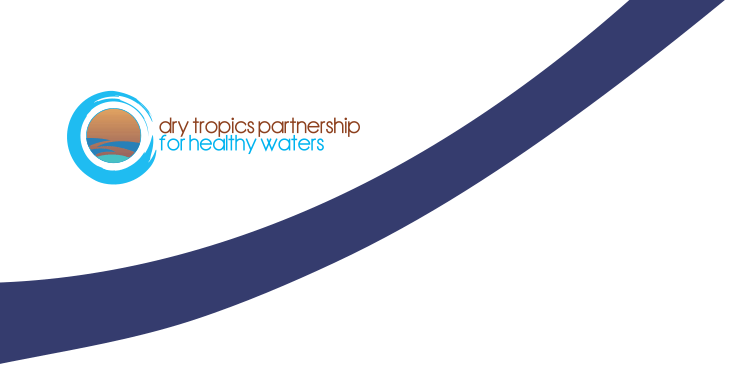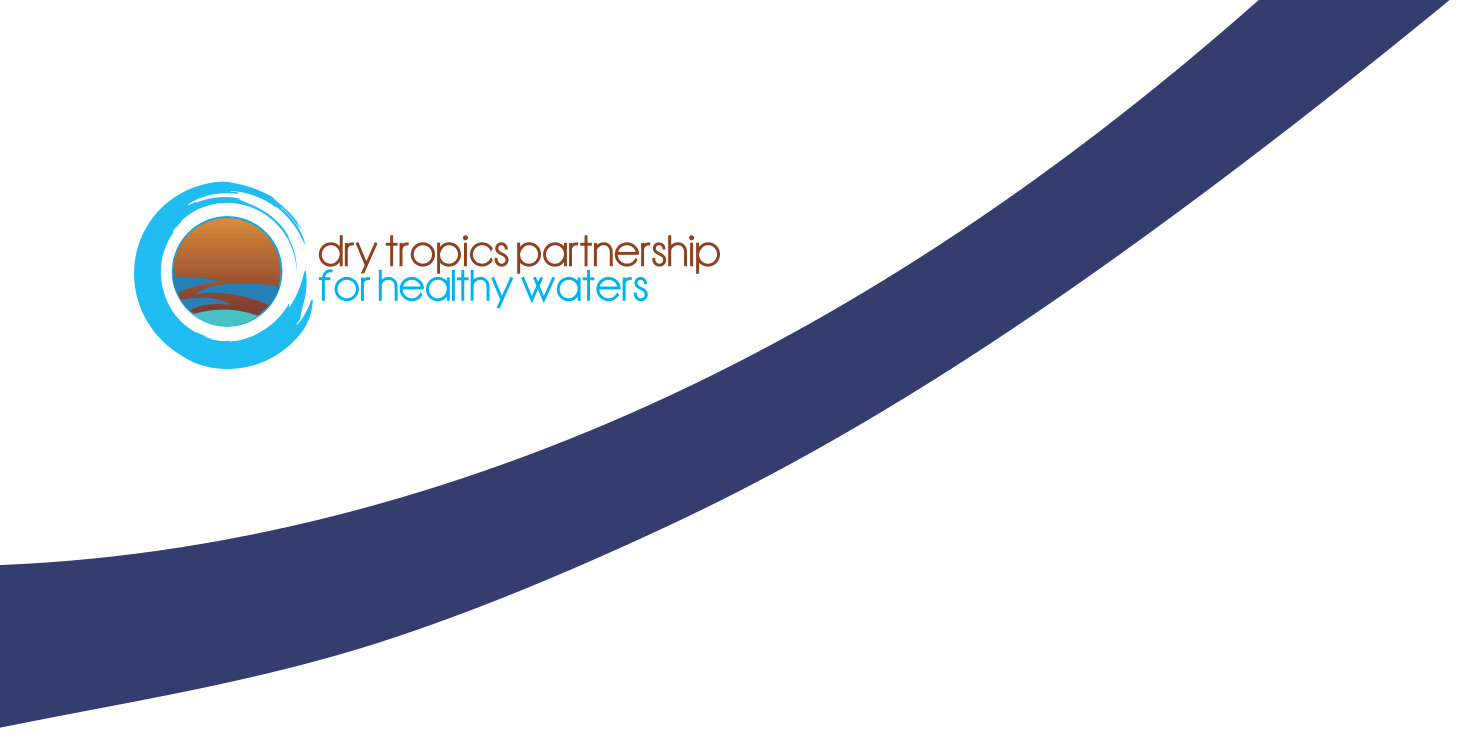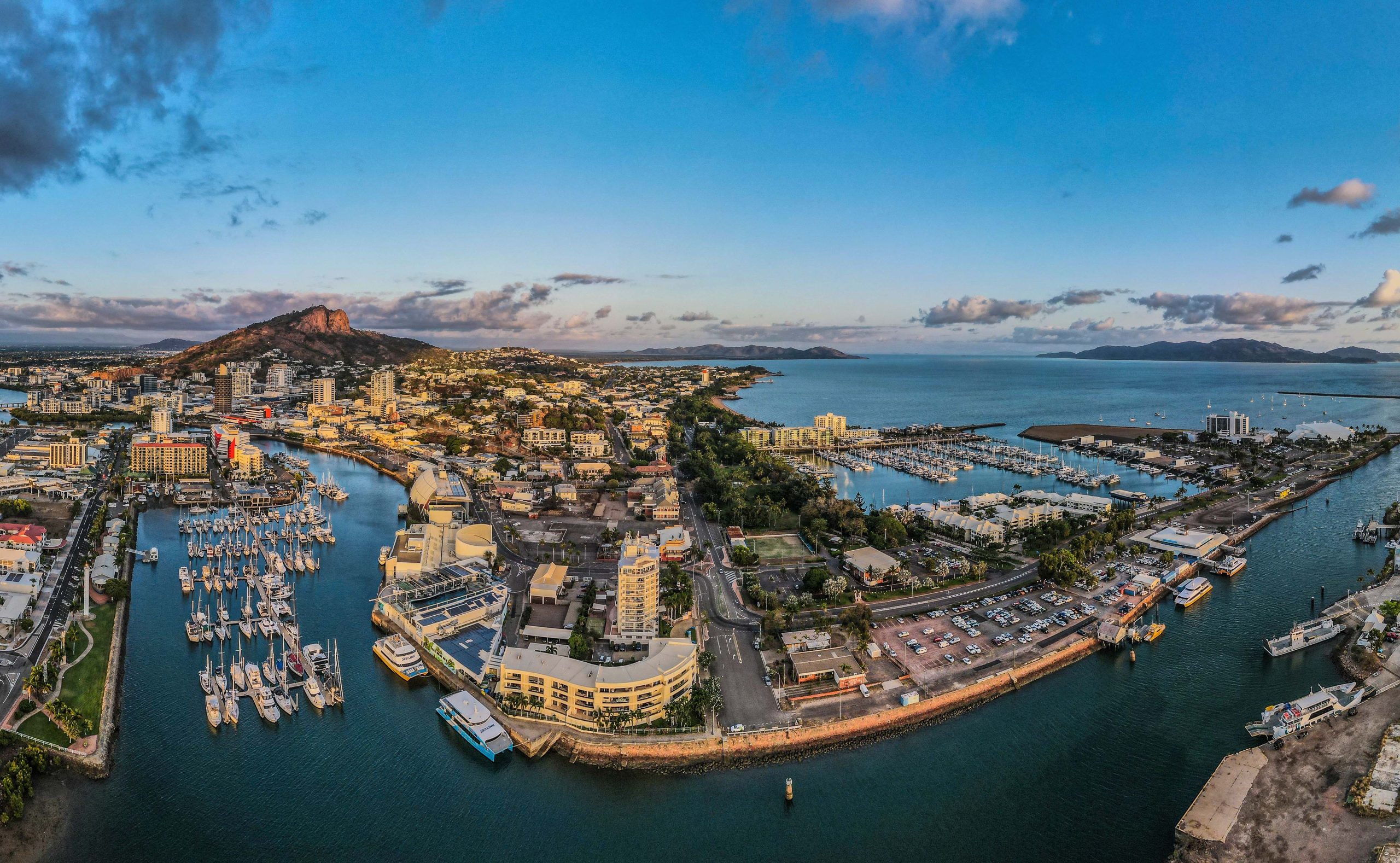We’re for healthy waters: Meet Dinny Taylor
This International Day of Women and Girls in Science, we’re especially grateful for the deep expertise of our Senior Technical Officer — a win for the waterways of Townsville, and for our team.
“My career started in Environmental Engineering, working in industry,” says our Senior Technical Officer, Dinny Taylor. “But I found I wanted to better understand how to analyse the data we were collecting. That brought me to study Data Science, and the combination of these two fields means you can bring out the real stories in the data — if you let it speak.”
All year, Dinny works with our team to collate, analyse, and investigate ways to improve our understanding and communication of the stories that emerge from the environmental data contributed by partner organisations across our region.
The data is brought together to produce Townsville’s annual independent Dry Tropics Waterways Report Card — providing health grades for local catchments and indicators that include water quality, habitat, fish, and litter pressure.

“I grew up on a farm north of Townsville in the Atherton Tablelands,” Dinny says. “Mum had a degree in rural science. Dad had studied tropical agriculture in Holland. Together, they taught us to think about systems as a whole, which led me to environmental engineering and the expansion of this view.
“Environmental engineering gave me the understanding that the scale of our view is of the utmost importance. As humans we tend to either zoom in to the micro level or zoom out to the big picture …
“To truly understand any complex system, we need to see the intrinsic and intricate relationships between its components – so we must view it at multiple scales. Water systems present us with a great example of the need for this multi-scale view. I’ve always been interested in waterways, above and below the surface, and their critical role in our environment.
“We are amid a triple planetary crisis of climate change, biodiversity loss, and pollution — all of which affect every aspect of our environment.
“Solutions to these problems must be designed to address all three of these crises simultaneously, not just one of them; a solution to climate change that creates pollution in a different form (waste), is not a solution.
“In my view, they must be integral of a circular economy, and can only be achieved with collaborative effort. Transparent and wholistic data analysis will help us find the best, balanced solutions. As Sanford I. Weill once said, ‘Details create the big picture.’

“It was the collaborative principles of this Partnership that drew me to be a part of it,” she adds. “We’re not just bringing waterway data together, but also organisations and people to look forward from a neutral place.”
Dinny and colleagues work in coding language ‘R’ to develop data analysis models; and produce technical reports to help decision-makers in our region listen to the stories being told by local waterway data.
Thanks to the University of New England, Dinny completes a Master of Data Science degree this year, and is working toward the release of Townsville’s 2024 Waterways Report Card. We’re proud to have her capability in our corner.
Did you know?
According to the UN, despite a shortage of skills in most technological fields, globally women still account for only 28% of engineering graduates and 40% of graduates in computer science and informatics.



